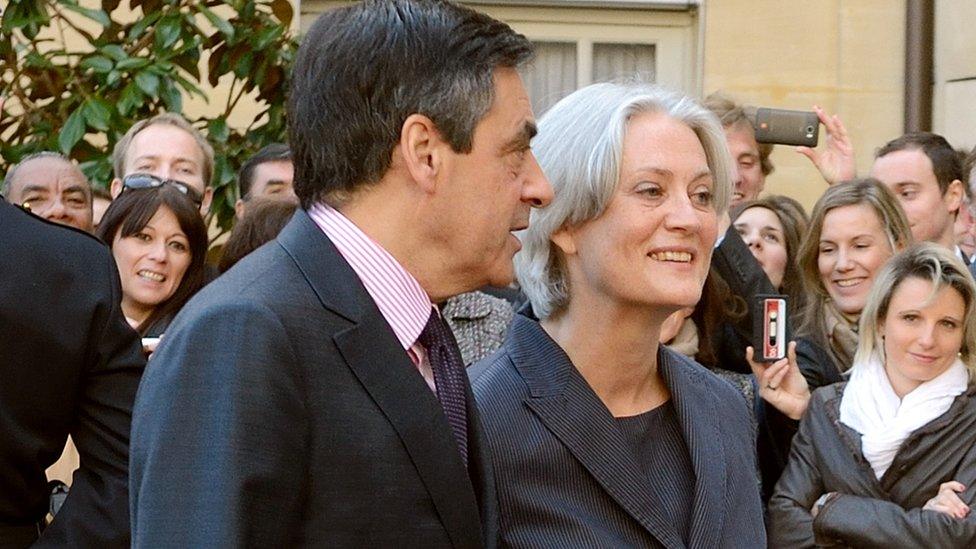Fillon refuses to quit French election despite investigation
- Published
Francois Fillon: "I will take it to the end"
French centre-right presidential candidate Francois Fillon says a judge is placing him under investigation over a fake job scandal - but has vowed to continue his election campaign.
For weeks, Mr Fillon has fought allegations that his wife was paid for years for work she did not do.
Mr Fillon called the investigation "a political assassination" against him.
President Francois Hollande criticised his words, and accused him of attacking France's judicial system.
"Being a presidential candidate doesn't authorise you to cast suspicion on the work of police and judges," Mr Hollande said.
Mr Fillon says he has been summoned to appear before the judge, Serge Tournaire, on 15 March.
The date is just two days before the deadline for candidates to submit their final applications. The first round takes place on 23 April, followed by a second-round run-off on 7 May.
Why is Francois Fillon staying in the race?
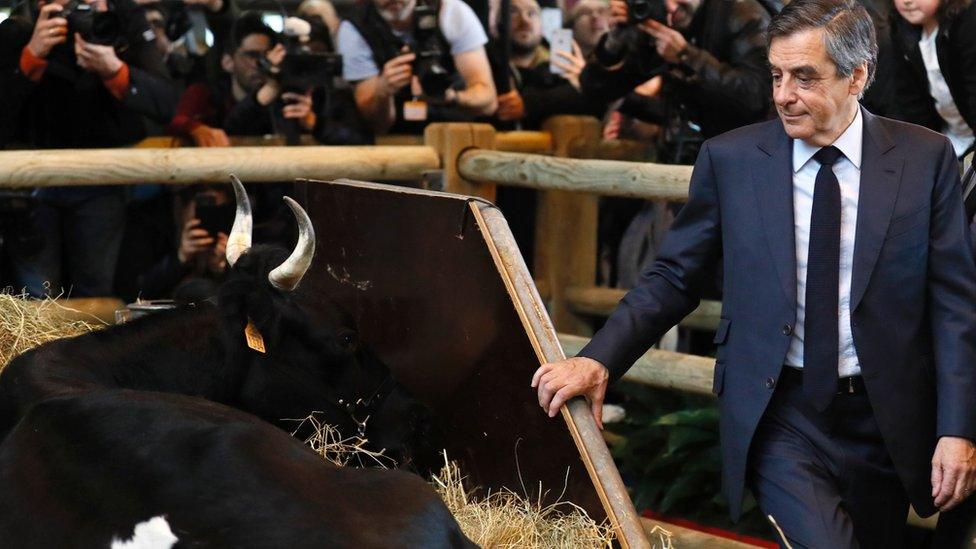
Mr Fillon delayed a key visit to an agricultural show on Wednesday, prompting speculation over the future of his campaign
Mr Fillon, who represents the centre-right Republicans party, says it is up to voters to decide his fate.
"It's not just me that is being assassinated, it's the presidential election. The voices of millions of votes have been muzzled," he said on a speech on Wednesday.
"The closer we get to the date of the presidential election, the more scandalous it would be to deprive the right and centre of a candidate," he argued.
He has faced criticism for his decision - especially because he had previously pledged to stand down as a candidate if his case was placed under formal investigation.
Mr Fillon's foreign affairs spokesman, Bruno Le Maire, has resigned from the campaign team, saying (in French), external he has undermined the "credibility of politics".
One allied party, the centre-right UDI, says it is suspending support for his campaign while it considers whether to still back him.
Can Mr Fillon win the elections?
Mr Fillon was selected late last year in national primaries held by the centre-right Republicans that attracted some four million voters.
For a time he was the favourite in the race to succeed Francois Hollande as president - until the fake job allegations emerged.
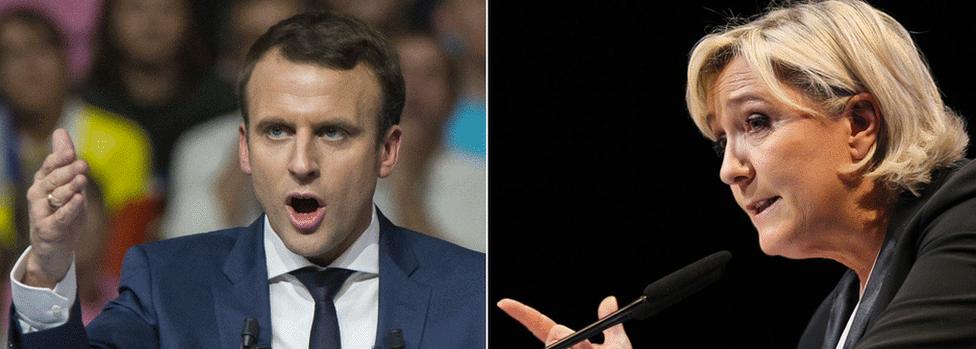
Emmanuel Macron and Marine Le Pen are seen by the polls as most likely to reach the run-off round of the election
He has slipped to third in the polls, behind far-right National Front (FN) leader Marine le Pen and centrist Emmanuel Macron.
Ms Le Pen also faces allegations that she misused EU funds - a claim she denies.

Analysis by Lucy Williamson, BBC Paris correspondent
Mr Fillon's decision to cling on sharpens the thorniest question for his party.
He's due to be placed under formal investigation just 48 hours before the deadline to confirm France's presidential candidates.
Replacing him as Republican nominee at this late stage would be a big gamble for the party, but having a candidate under investigation could also backfire.
Bruno Jeanbart, director of polling company Opinionway, says: "So far, many right-wing voters have stuck with him because they want a change of government.
"But if they think his candidacy will finish badly, it's possible they will shift their support elsewhere."

What is he accused of?
The allegations circling around the Fillon family focus mainly on his Welsh-born wife Penelope, who is reportedly also facing an investigation.
Newspaper Le Canard Enchaine alleges she was paid €831,400 (£710,000; $900,000) over several years for working as a parliamentary assistant for Mr Fillon and his successor, but had no parliamentary pass - raising questions over whether she did the work she was paid for.
She was also alleged to have picked up €100,000 for writing a handful of articles for a literary journal.
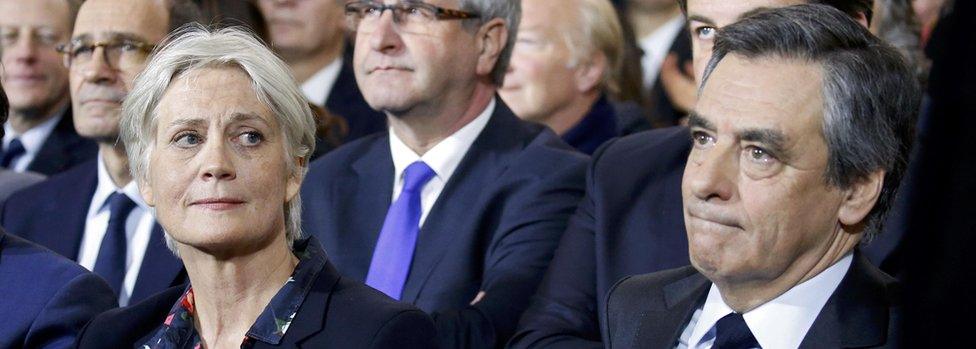
French MPs are allowed to employ family members but the role of Penelope Fillon (L) is unclear
The family has consistently denied the claims.
How have other politicians reacted?
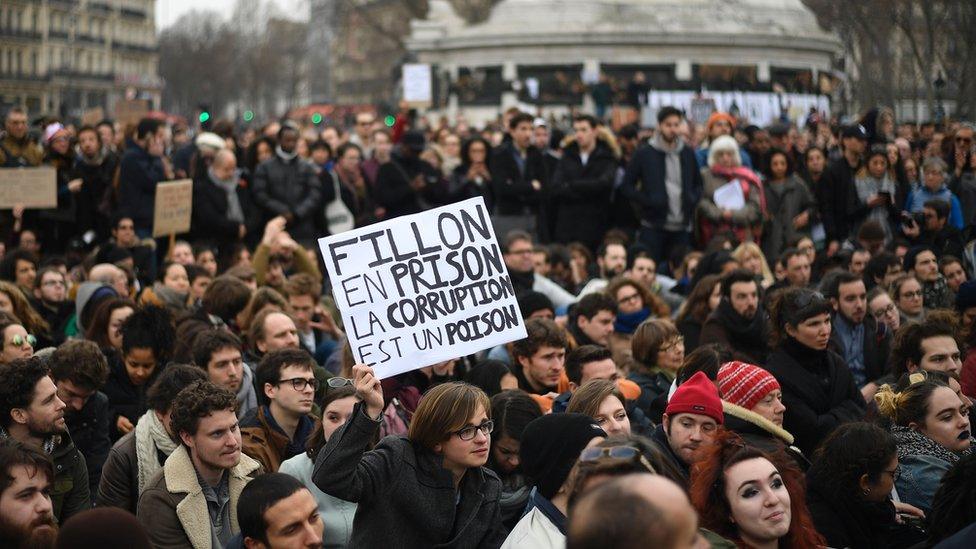
Campaigners have held protests against Mr Fillon
Some Republicans have expressed their support, with politician Bernard Debre saying Mr Fillon was "doing the right thing" by staying in the race.
Rival Mr Macron said investigators should be "allowed to do [their] work as normal", but warned that Mr Fillon would not be cleared automatically of wrongdoing even if he won the vote.
Far-left presidential candidate Jean-Luc Melenchon criticised Mr Fillon's decision, tweeting (in French), external: "Fillon is asking somehow for the citizens to vote for his immunity. This is not the point of an election."
- Published24 April 2017
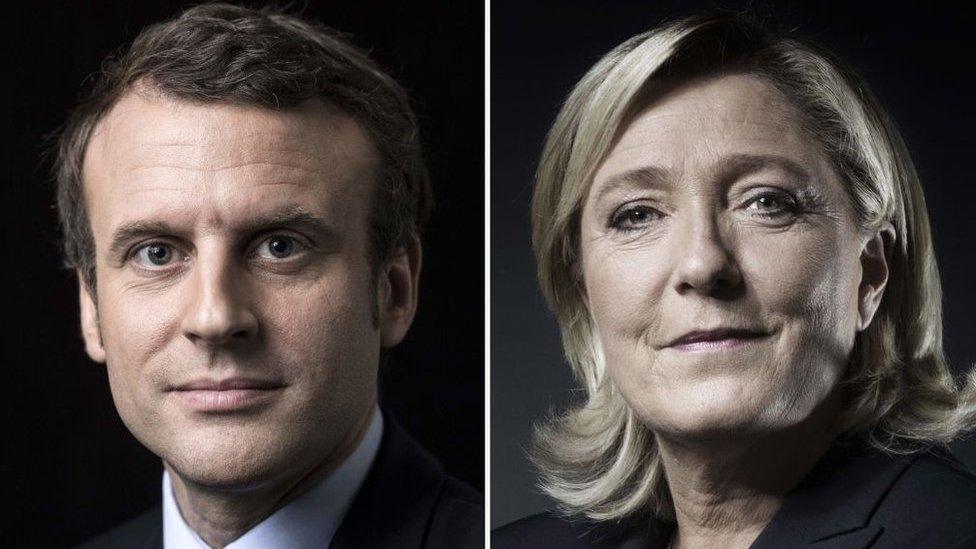
- Published29 March 2017
